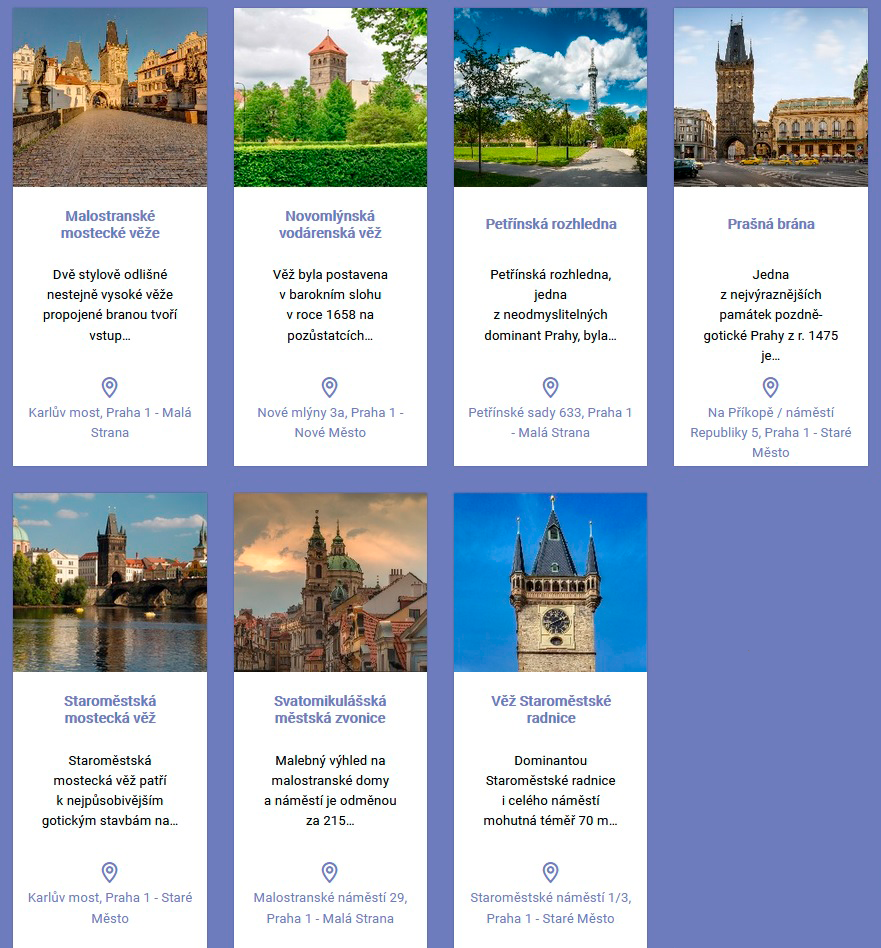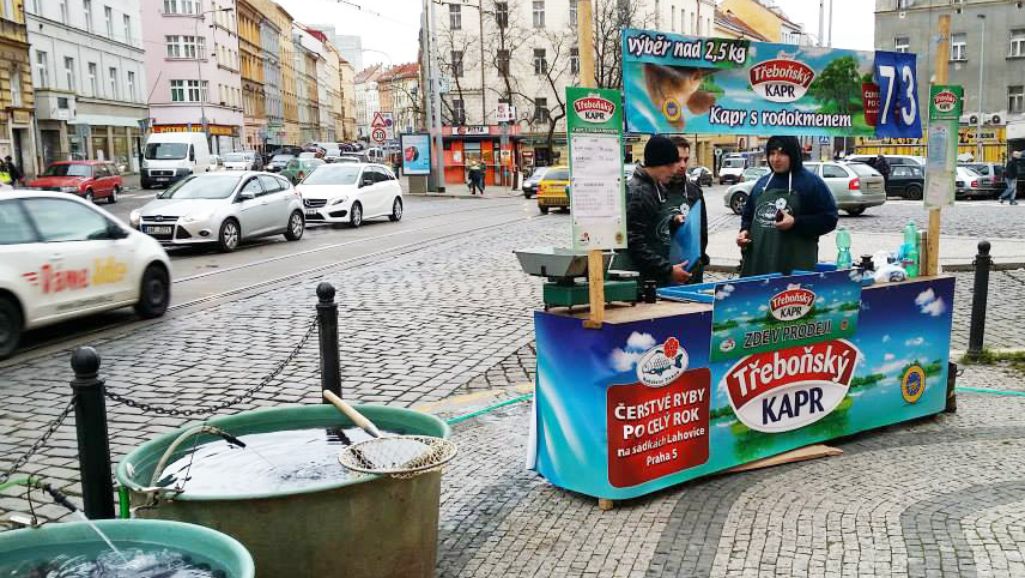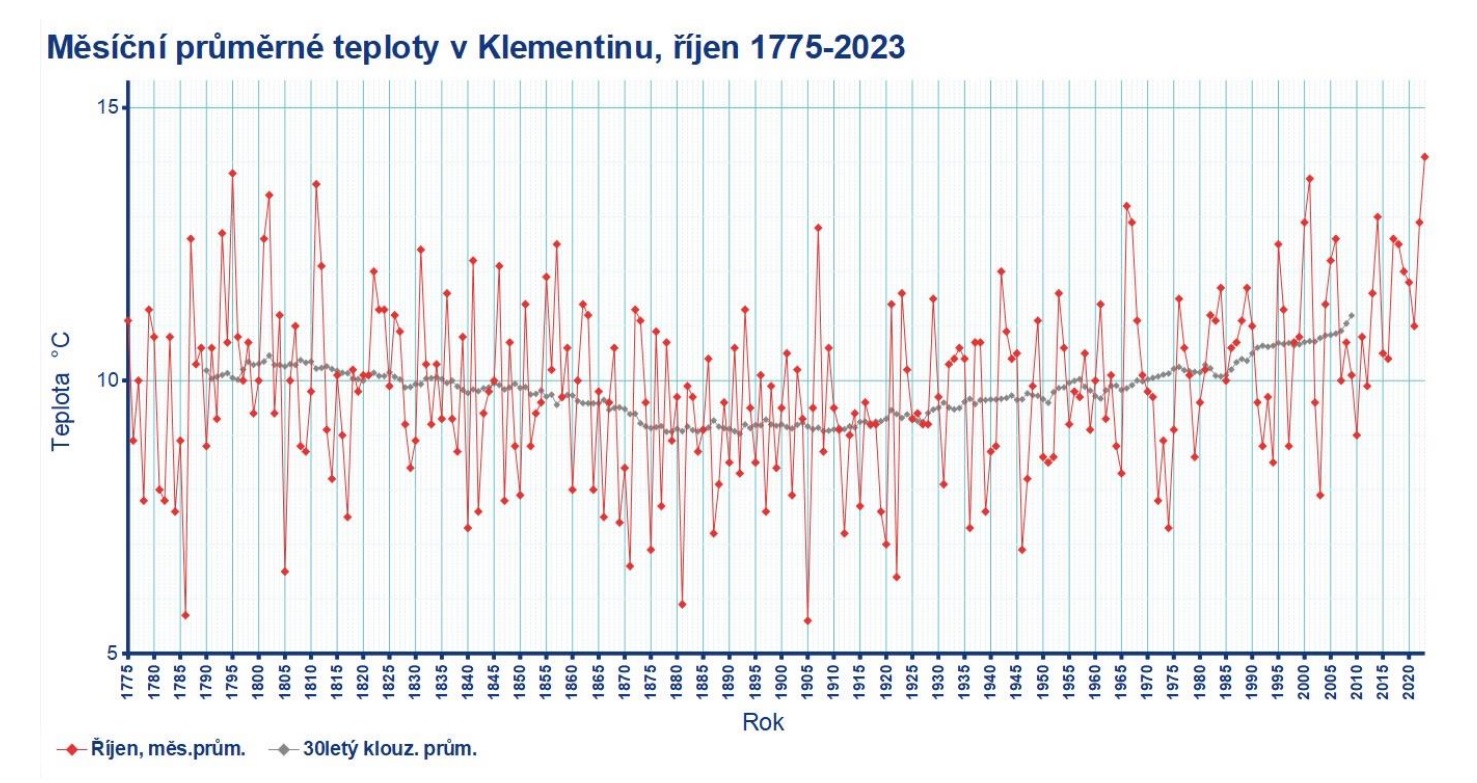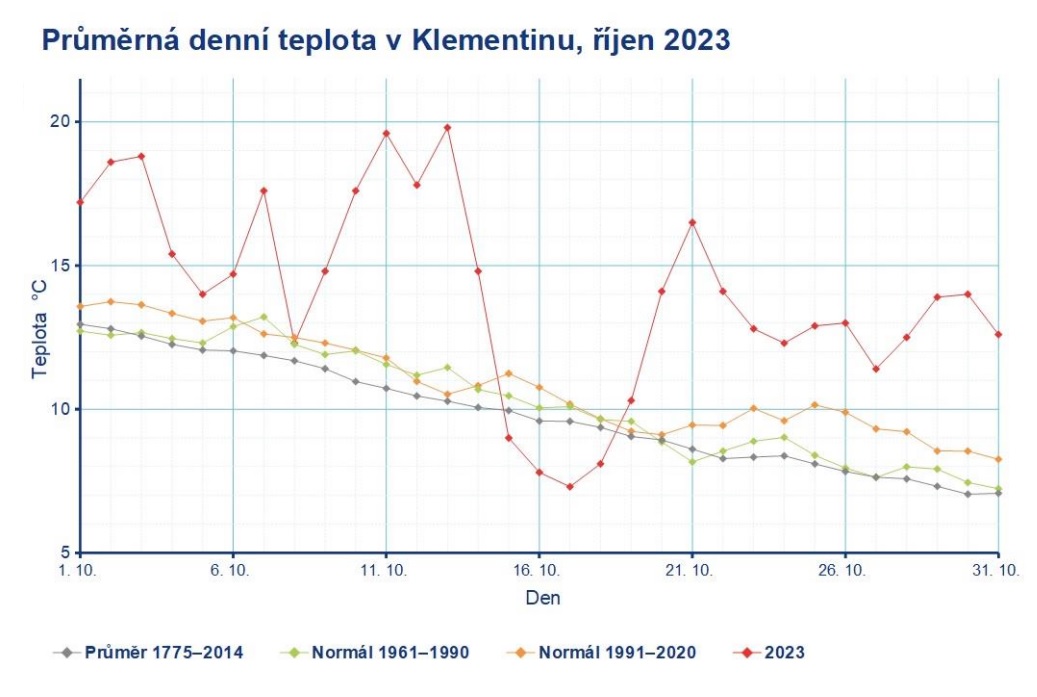The Prague Transport Company (DPP) plans to launch a competition with an estimated value of 86 billion crowns to automate traffic on the C metro line along with the purchase of automatic trains for the under-construction D line.
City councilors approved the move, with representatives yet to vote.
The contract will include the purchase of 52 automatic sets for Line C, 16 sets for Line D, and necessary modifications and necessary station modifications.
Deputy mayor Zdeněk Hřib (Piráti) emphasized the urgency of announcing the tender promptly due to the testing and homologation needs of the trains. The city aims to select a winner within approximately two years.
“Automation will reduce the interval to 90 seconds, significantly boosting the capacity of the C line,” added the deputy. For line D, currently under construction, automated operation is planned from the outset.
Preparatory work and car development will occur in 2026 and 2027, followed by the production, certification, and homologation of the first cars between 2027 and 2028. A test run is expected between 2028 and 2029, paving the way for serial production and the delivery of the ordered trains.
The primary motivation for automating the C line lies in its high workload, particularly in central sections from Nádraží Holešovice to Vyšehrad, where capacity is stretched to the limit. Without automation, reducing intervals, currently at around 115 seconds during peak times, would be unfeasible.
The construction of the new D Line is divided into four phases or sections, the first of which is the section I.D1a (Pankrac – Olbrachtova), followed by I.D1b (Olbrachtova – Nové Dvory) with the construction of three stations and interstation tunnels, I.D3 (Namesti Bratří Sinku – Namesti Miru), and I.D2 with three stations and the depot in Písnice.
Perhaps spiders are not a nuisance after all — at least that’s the case for Adam Sandler in “Spaceman,” in which he receives emotional support from an oversized arachnid in outer space.
Netflix has released the trailer for Sandler’s upcoming sci-fi film, set to premiere at Berlin Film Festival next month. It will then release in select theaters on Feb. 23 and on the streamer March 1.
Directed by Johan Renck, who helmed the HBO miniseries “Chernobyl,” the film is based on the 2017 novel “Spaceman of Bohemia” (Kosmonaut z Čech) by Czech author Jaroslav Kalfař.
The film’s description reads, “Six months into a solitary research mission to the edge of the solar system, an astronaut, Jakub (Adam Sandler), realizes that the marriage he left behind might not be waiting for him when he returns to Earth.
Desperate to fix things with his wife, Lenka (Carey Mulligan), he is helped by a mysterious creature from the beginning of time he finds hiding in the bowels of his ship. Hanuš (voiced by Paul Dano) works with Jakub to make sense of what went wrong before it is too late.”
The trailer reveals that Sandler’s Jakub is 189 days into his solo space mission and struggling to cope with his isolation. When he meets Dano’s giant spider-like creature, Jakub says, “I’m losing my mind.”
“I wish to assist you in your emotional distress,” the talking spider tells Jakub.
In Prague, Spaceman shot at locations including the Desfours Palace by the Florentinum business complex, the Zelený Pruh swimming pool, Prague Congress Center, and areas in Radotín.
Outside of Prague, Spaceman also shot at locations in Marianské Lázně, Černošice, Bystřice, Slapy, Jetřichovice, Bernartice, the Branov campsit
In addition to Sandler, Dano and Mulligan, the cast features Kunal Nayyar, Lena Olin and Isabella Rossellini.
The script for “Spaceman” was penned by Colby Day. Producers include Channing Tatum, Reid Carolin, Peter Kiernan, Michael Parets, Tim Headington, Lia Buman and Max Silva. Executive producers are Ben Ormand, Johan Renck and Barry Bernardi.
On Tuesday, 9 January, Prague police unveiled a new video showing the coordinated efforts of law enforcement and special forces during the shooting at the Faculty of Philosophy of Charles University. The footage provides a detailed account of the officers’ actions.
The video captures the moment police entered the building, searching room by room in their pursuit of the shooter. Timely timestamps accompany the footage, enhancing viewers’ comprehension of the law enforcement’s strategies.
In addition to the building search, the video reveals the scene of the shooter’s lifeless body.
The sharpshooters strategically positioned themselves in a nearby hotel, aligning with the shooter’s elevation.
From this vantage point, they patiently awaited his approach to the gallery. When one of the sharpshooters aimed at him, the assailant initially seemed to surrender by dropping his weapon and raising his hands. However, he retrieved his weapon and took his own life.
The tragic incident took place on the afternoon of 21 December at Charles University. The toll stands at 14 lives lost and 25 injured.
Addressing concerns, the Office of Internal Control of the Police Presidium of the Czech Republic announced on Tuesday that their investigation found no faults in the police actions.
Michal Tikovski, the department director, emphasized that the police’s professional intervention, coupled with a flawless evacuation procedure, adhered to established protocols in responding to a shooter attack.
Music festival Rock For People has announced their lineup for this year’s edition, which includes headlining performances by Wargasm, Enter Shikari, Bring Me The Horizon, and many more.
The festival runs on June 12 – 15 at Park 360 in Hradec Králové.
Also performing at Rock For People are The Prodigy, Band Omens, Corey Taylor, Thy Art Is Murder, 311, Alpha Wolf, Bleed From Within, The Offspring, Parkway Drive, Body Count Featuring Ice -T, Neck Deep and others.
Sum 41, Avril Lavigne, DogStar, Missio, Royal Public, Counterparts, Crawlers, Dead Pony, Hoobastank, Red, Shadow Of Intent, La Dispute and Royal and The Serpent will also be performing.
The Prodigy will take to the stage to close out the opening night and The Offspring, who will take on the headline slot the following day.
Yungblud is set to close out the festival with the final headline slot of 2024. He will take to the stage on Saturday (June 15) alongside previously announced artists Pendulum – who will be playing a late-night set – and Kaizers Orchestra.
Rock for People Festival is known as one of the greatest rock festivals that take place in the Czech Republic. The festival started in 1995 and since then, it has attracted thousands of celebrators.
Last year, it attracted around 37,000 fans.
In addition to its headliners that included Slipknot, Machine Gun Kelly, The 1975, and MUSE, the past edition featured many unforgettable performances, such as Billy Talent, Papa Roach, Nothing But Thieves, Palaye Royale, Mod Sun, Stand Atlantic and Alice Merton.
Further information and tickets for the festival are available now via the event’s official website.
The Prague City Hall has disclosed the details of the New Year surprise it has in store for its citizens on January 1, 2024.
Earlier reports indicated that this surprise would serve as compensation for the decision to forgo fireworks, video mapping, and other mass celebrations on New Year’s Eve.
The authorities deemed large-scale festivities inappropriate given the backdrop of the war in Ukraine and the challenging economic situation.
Instead, Prague City Tourism plans to reduce the cost of visiting popular attractions for one day (January 1):
Prague Zoo and the Botanical Gardens in the Troja neighborhood will be open to everyone, with a visit costing only 1 crown.
An adult ticket to the Prague Public Transport Museum will cost 60 CZK, while a child’s ticket only 20 CZK.
Seven Prague towers, including the Petřín Tower, the Old Town Tower, both towers of the Charles Bridge, and the Powder Gate, among others, will offer a 50% discount on entry.
Proof of residence or daily travel to Prague will be required at the entrance. The most convenient means of verification is by presenting a Lítačka pass or ID card.
 Tadeáš Prováznik, a spokesman for the Magistrate’s Office, highlighted, “This way, every Prague citizen can choose how to spend New Year’s Eve. Especially for families with children, it provides a pleasant opportunity amidst the general price increase.”
Tadeáš Prováznik, a spokesman for the Magistrate’s Office, highlighted, “This way, every Prague citizen can choose how to spend New Year’s Eve. Especially for families with children, it provides a pleasant opportunity amidst the general price increase.”
Czechia has the highest inflation rate in the entire European Union according to the latest report from the EU’s statistical office Eurostat.
Prices in the Czech Republic climbed by 8 percent year-on-year, while the average EU inflation rate fell by 0.5 percent in November to 3.1 percent, the lowest it has been in around two years.
In the Eurozone countries, inflation fell by 0.5 percent in November to 2.4 percent.
However, the Czech Republic stands out with the highest inflation rate in the EU, witnessing an 8 percent year-on-year surge. In contrast, Belgium is already grappling with deflation, experiencing a 0.8 percent decrease in prices year-on-year.
Within the euro area countries, November also witnessed a 2.4 percent inflation rate, confirming Eurostat’s initial estimate. Notably, EU-wide inflation is not factored into this estimate.
Comparatively, a year ago, the inflation rate in the euro area was 10.1 percent, rising to 11.1 percent across the entire Union.
The Czech Republic’s inflation surpasses that of other countries, such as Hungary, which historically held the highest inflation in the EU. Hungary now records a 7.7 percent inflation rate.
In Poland, the inflation rate remained stable at 6.3 percent in October, while Slovakia experienced a decrease to 6.9 percent.
In November of the previous year, inflation in the Czech Republic reached 17.2 percent, Hungary at 23.1 percent, Slovakia at 15.1 percent, and Poland at 16.1 percent.
Following Belgium, the EU country with the lowest inflation rate was Denmark, standing at three-tenths of a percent. Italy claimed the third position, experiencing a modest 0.6 percent year-on-year price increase.
Conversely, Hungary ranked as the second-worst country after the Czech Republic, with Slovakia and Romania sharing the third spot, both at 6.9 percent.
In comparison to October, inflation rates in 21 out of the 27 Member States eased, remained unchanged in three, and increased in three.
The population of Czechia increased by 54,700 to 10.88 million in the first three quarters of this year, according to data published by the Czech Statistics Office on Tuesday.
The increase is due to foreign migration, especially from Ukraine.
From January to the end of September, 116,700 people immigrated to Czechia, while 48,600 people left the country. The figures include Ukrainians granted temporary protection due to Russian military aggression.
According to the freshly released data, the first six months of 2022 saw 69,200 births, which is a drop of 11 percent year-on-year.
Moreover, there was a decrease of over 10 percent in marriages compared to the previous year, accompanied by fewer deaths and divorces.
Between January and September, 116,700 people moved to the country from abroad, while 48,600 people moved out.
Two-fifths of those who left were registered in September, reflecting the conclusion of the stay for individuals with temporary protection who failed to comply with the deadline for visa sticker affixation to their travel documents.
Czechia experienced a net loss of 13,300 residents through natural channels, marking an increase of 2,800 from the same period last year.
In the first three quarters of the year, 41,500 couples got married, a 14 percent decrease compared to the same period in 2022. Marriages declined for both single and divorced individuals at a similar rate, as highlighted by Michaela Němečková from the CSO’s demographic statistics department.
Year-on-year, there were 300 fewer divorces, with authorities dissolving 14,400 marriages.
These population shifts shed light on the evolving demographic landscape of the Czech Republic, with migration playing a pivotal role in shaping the nation’s dynamics.
In a notable move, major retail chains Lidl and Billa in the Czech Republic have opted against selling live Christmas carp outside their stores, marking a significant shift in their approach.
The decision aims to prioritize both customer satisfaction and environmental responsibility.
This isn’t the first time Lidl has taken such a stance. In 2022, the company emerged as the trailblazer in the Czech market by becoming the sole retail chain to refrain from live carp sales.
According to Lidl’s spokesperson Tomáš Myler, “Responsible business means offering customers the highest quality goods while ensuring our operations remain sustainable in the long term. That’s why we’ve chosen to ban the sale of carp outside our supermarkets. Fresh, already packaged fish will now be conveniently available in the sales area.”
Joining this ethical initiative for the first time, Billa’s decision aligns with their broader strategy to show respect for animals and the environment. Last year, the company also ceased selling amateur pyrotechnics as part of this commitment.
However, rival chains Tesco, Kaufland, Albert, and Penny are not following suit. They intend to continue selling live carp outside their supermarkets through partner companies.

It’s crucial to recognize that in the Czech Republic, carp holds a special place on the Christmas table, with its sale being a longstanding tradition.
The process typically begins a few days before the holiday, with live fish showcased on the streets in large basins with running water. Sellers prepare the fish, including killing and cutting it according to the buyer’s order, right on the spot.
This tradition has faced criticism from animal rights activists, who highlight the inhumanity of the method. Live fish often endure cramped conditions, oxygen deprivation, and extreme stress in overcrowded basins.
Fish farms and sellers defend the practice, emphasizing its integral role in Czech culture. They assert that the rules governing the keeping and killing of carp are strictly regulated by the Czech Veterinary Office.
Regular inspections by both the Veterinary Office and the Czech Trade Inspectorate ensure compliance with these regulations.
The Czech government has proposed a document that, among other ideas, includes making visa issuance for Russian diplomats more stringent as part of negotiations on the 12th package of EU sanctions against Russia.
The package is currently being debated by the Schengen countries and has yet to be approved by the respective governments.
According to Czech officials, Russian diplomats should be able to obtain visas and residence permits that allow them movement only within one Schengen country instead of the whole area. The same points out that the measure is aimed at countering espionage.
Over 70 Russian nationals were expelled from Czechia last year as an act of solidarity with Ukraine, which has been fully invaded by Russian troops ordered by Russian President Vladimir Putin.
In addition to restricting Russians to only one Schengen country, Czechia also believes that the EU should accept only biometric passports in hopes of harder-to-forge documentation and in an effort to limit links to fake identities.
One of the issues that Prague mentioned was related to Russian officials who were obtaining Austrian visas to work for UN agencies in Vienna and then travelling elsewhere in the Schengen Area.
By the middle of the month, the EU Diplomacy Chief Josep Borell, in cooperation with the European Commission, presented the proposal for a new package of sanctions against Russia, which would mark the 12th consecutive proposal for more stringent measures for this country and its population.
The debate is still ongoing, and the legal issues involved mean that any change is unlikely to be noticed in the package that is being discussed and revised by the respective authorities.
Earlier, media reports estimated that Vienna had become the “spy capital” of Europe due to the procedures of local legislation and the large staff of the Russian embassy there.
Italy and Finland were the other two main destinations for Russian applicants in 2022, with 117,167 and 112,737 applications, respectively.
Located in the heart of Prague’s historic centre, The Mozart Prague offers a particularly festive atmosphere during Christmas time. Expats, locals, and tourists seeking a blend of tradition and luxury are in the right place.
Commence your Christmas journey this year with the Charity Advent Market, occurring in the hotel’s courtyard from December 1 to 3. In collaboration with the charity organization ‘Act for Others,’ The Mozart Prague assures you a magical Christmas experience. Immerse yourself in the spirit of Christmas and contribute to a good cause simultaneously.
The ticket price for Friday, December 1, is CZK 150 from 4 to 5 pm and CZK 250 from 5 to 10 pm (Jazz Night). On Saturday, December 2, admission costs CZK 150 from 11 am to 10 pm, and on Sunday, December 3, also CZK 150 from 11 am to 6 pm.
For culinary enthusiasts, the hotel’s chef has curated a weekly changing menu from November 27 to December 26, inviting you to explore new flavor harmonies and offering a constantly new and exciting gastronomic adventure. Highlights include goose liver parfait, turkey breast roulade, and a special chef’s cheesecake.
The Christmas dinner on Christmas Eve is a celebration that combines tradition with luxury. Savor dishes such as pumpkin soup with black truffle, turkey roulade, and a varied dessert buffet. The menu is available for CZK 2,950 per person.

On December 26, relish a special Boxing Day brunch. In the opulent setting of the hotel restaurant, enjoy a sumptuous buffet, delicious soups, and a choice of three main courses. Prices are CZK 2,500 for the non-alcoholic package, CZK 2,990 for the alcoholic package, CZK 445 for children aged 5 to 11, and CZK 290 for children under 4.

The new year begins at The Mozart Prague with a Disco Fever-themed party. Alongside a sumptuous buffet and exquisite main courses, toast the New Year with a glass of champagne while enjoying a mesmerizing view of the city illuminated by fireworks. The price is CZK 4,800, including a glass of champagne.
Turn your festive season into an unforgettable event in the heart of one of the most beautiful cities in the world. For more information and reservations, visit the hotel’s website

Our best stories straight to your WhatsApp. Sign up here
A recent Ipsos study for Creditas Bank uncovered that every sixth person in the Czech Republic can only set aside a maximum of five hundred crowns each month.
Half of the respondents don’t save even CZK 2,000 a month, and a third of households have savings ranging from one CZK 100,000 to half a CZK 500,000.
The study also disclosed that almost half of the respondents admitted their savings wouldn’t cover a three-month interruption in income.
Approximately one in five are striving to save for housing. However, those who do often mishandle their savings, depriving themselves of potential returns. “Seven in ten respondents keep their savings in cash or a current account,” warned Ivana Pícková from Creditas.
She cautioned that a million crowns deposited in a non-interest-bearing current account would earn nothing in a year. Depositing the same amount in a savings account would yield around CZK 50,000 annually at today’s average interest rates.
The most popular saving tools are cash, with 71% of people having savings, and savings accounts used by 69% of respondents.
This is followed by state-subsidized products, such as pension savings, building savings, and investment funds. Pension insurance is held by 64% of respondents, and making savings by 39%.
The survey also found that women save less than men. Residents of Prague hold the highest savings. However, in the capital, there is also the highest proportion of those who do not save anything: every tenth Prague citizen.
The most frugal age group, in terms of monthly deposits and the volume of savings, is people between 45 and 53 years old.
Our best stories straight to your WhatsApp. Sign up here
Prague is currently experiencing an unusually warm autumn. Following the warmest September in recorded history, October also set a new record.
This information was reported on Wednesday by the weather station at Prague’s Clementinum, which has been maintaining statistics since 1775.
According to its data, the average monthly temperature in October was +14.1°C, surpassing the previous record set in 1795 by 0.3°C.
It is also 4.3°C higher than the long-term average for October (1775-2014) and 3.2°C above the recent climatic norm (1991-2020).
The coldest October in Prague’s history was in 1905, with an average monthly temperature of +5.6°C, as depicted on the graph.

The warmest day of October 2023 occurred on the 13th, with an average daily temperature of +19.8°C. In contrast, the coolest day was on the 17th, with an average daily temperature of +7.3°C.

Prague’s historical record for the hottest October day dates back to October 3, 1929, with a temperature of +21.9°C.
While the record for the coldest October day in the capital, set on October 30, 1776, with an average daily temperature of -3.1°C, remains unbroken, there is a possibility it might be surpassed in the future.
